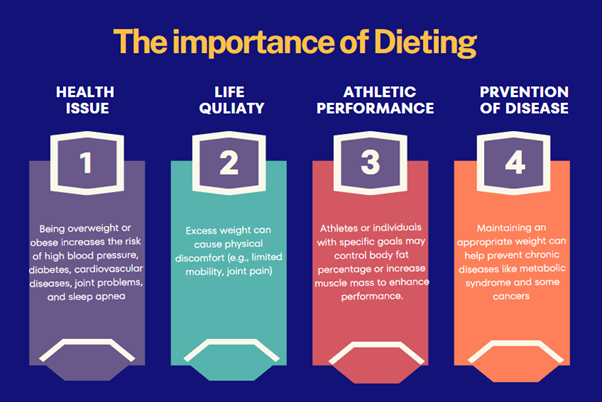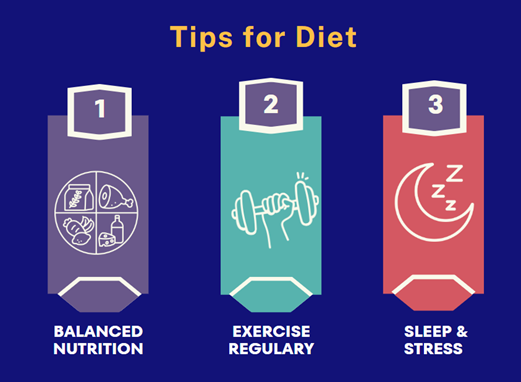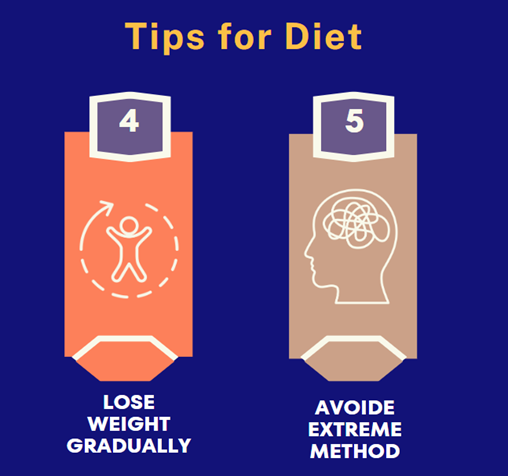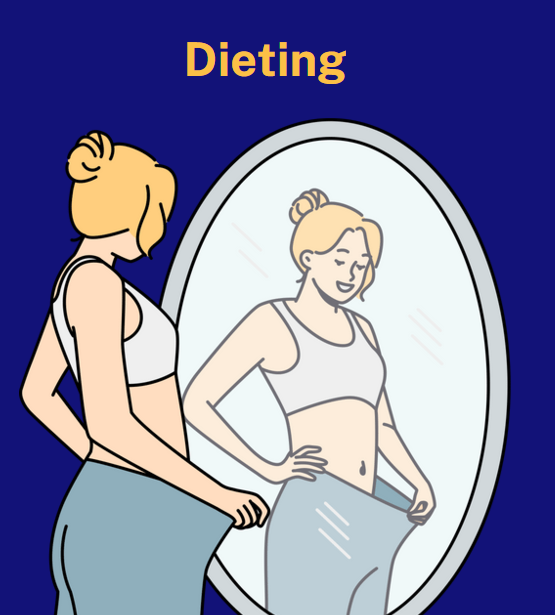Basic Concept of Healthy Diet
The term “diet” does not simply mean losing weight. Diet refers to the practice of adjusting one’s diet and lifestyle to maintain or improve health. It can include weight loss, weight maintenance, or even weight gain.
- The key to a healthy diet is maintaining nutritional balance while tailoring the diet and exercise to individual goals and health conditions.
- Extreme diets aimed at rapid weight loss can often do more harm than good.
The Need for Healthy Dieting

Healthy dieting may be necessary in the following situations:
- Health Issues Related to Weight
Being overweight or obese increases the risk of high blood pressure, diabetes, cardiovascular diseases, joint problems, and sleep apnea. Weight loss can help prevent or manage these conditions. - Improvement in Quality of Life
- Excess weight can cause physical discomfort (e.g., limited mobility, joint pain).
- Adjusting weight can boost self-confidence and psychological satisfaction.
- Athletic Performance and Specific Goals
Athletes or individuals with specific goals may control body fat percentage or increase muscle mass to enhance performance. - Prevention of Diseases
Maintaining an appropriate weight can help prevent chronic diseases like metabolic syndrome and some cancers.
How to Calculate Ideal Weight for Healthy diet
Ideal weight varies depending on factors such as body structure, activity level, age, gender, and health conditions. Here are some general methods to estimate it:
1) BMI (Body Mass Index)
BMI = Weight (kg) ÷ Height (m)²
- Normal weight: BMI 18.5 ~ 24.9
- Overweight: BMI 25 ~ 29.9
- Obesity: BMI 30 or above
While BMI is simple, it may not be suitable for individuals with high muscle mass.
2) Waist Circumference
- Men: Greater than 90 cm (36 inches) may indicate abdominal obesity.
- Women: Greater than 85 cm (34 inches) may indicate abdominal obesity.
Waist circumference is useful for assessing the risk of metabolic diseases.
3) Body Fat Percentage
- Healthy Body Fat Percentage:
- Men: 10% ~ 20%
- Women: 20% ~ 30%
Body fat percentage provides a more accurate measure by considering the ratio of muscle to fat.
4) Broca’s Formula (Simple Ideal Weight Calculation)
- Men: (Height(cm)−100)×0.9(Height(cm) – 100) times 0.9(Height(cm)−100)×0.9
- Women: (Height(cm)−100)×0.85(Height(cm) – 100) times 0.85(Height(cm)−100)×0.85
This method is simple but does not account for individual body composition. - Tips for a Healthy Diet


- Balanced Nutrition: Adjust the ratio of carbohydrates, proteins, and fats, and consume foods rich in vitamins and minerals.
- Exercise Regularly: Combine cardio with strength training for optimal results.
- Sleep and Stress Management: Proper sleep and stress reduction are crucial for diet success.
- Lose Weight Gradually: Aim for 0.5 ~ 1 kg (1 ~ 2 lbs) of weight loss per week to avoid strain on your body.
- Avoid Extreme Methods: Fasting or single-food diets can lead to yo-yo effects and harm your health.
Maintaining an ideal weight involves more than just focusing on weight; it requires considering overall lifestyle and health. 😊
What is Intermittent Fasting (IF)?
Intermittent fasting (IF) is a dietary approach that alternates between periods of eating and fasting. It is not about what you eat but rather when you eat.
Common Methods of IF
- 16/8 Method:
Fast for 16 hours and eat within an 8-hour window. For example, eat between 12 PM and 8 PM and fast the rest of the time. - 5:2 Diet:
Eat normally for five days of the week and consume only about 500~600 calories on two non-consecutive days. - Eat-Stop-Eat:
Fast for 24 hours once or twice a week. - Alternate-Day Fasting:
Alternate between normal eating days and fasting days.
Benefits of Intermittent Fasting
- Weight Loss: Helps reduce calorie intake while maintaining muscle mass.
- Improved Metabolism: Enhances fat-burning and insulin sensitivity.
- Reduced Inflammation: Fasting can reduce inflammation markers in the body.
- Enhanced Brain Health: May protect against neurodegenerative diseases and improve focus.
- Convenience: Reduces the need for meal planning.
Considerations and Risks
- Not suitable for everyone, especially pregnant women, people with eating disorders, or those with certain medical conditions.
- May lead to fatigue, irritability, or overeating during the eating window if not managed properly.
Intermittent fasting can be an effective tool, but it should be tailored to individual needs and done in consultation with a healthcare provider.


